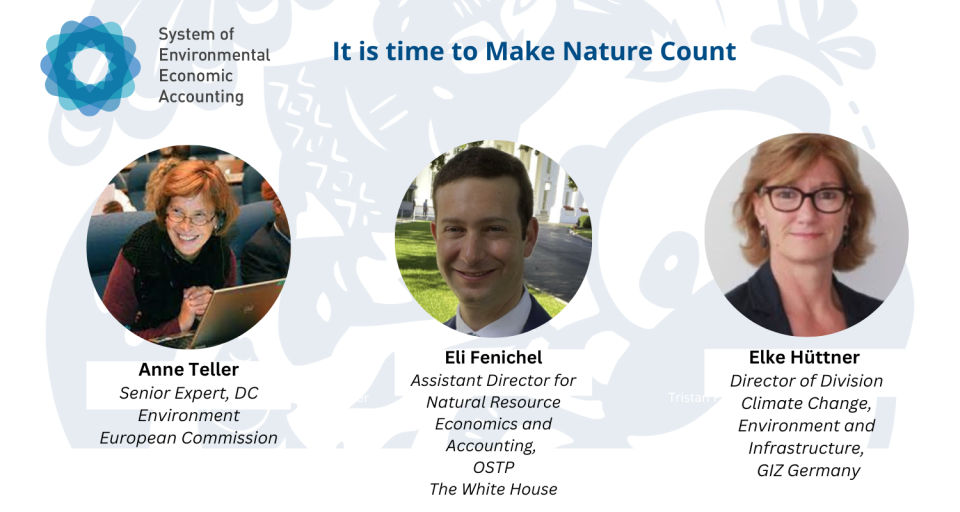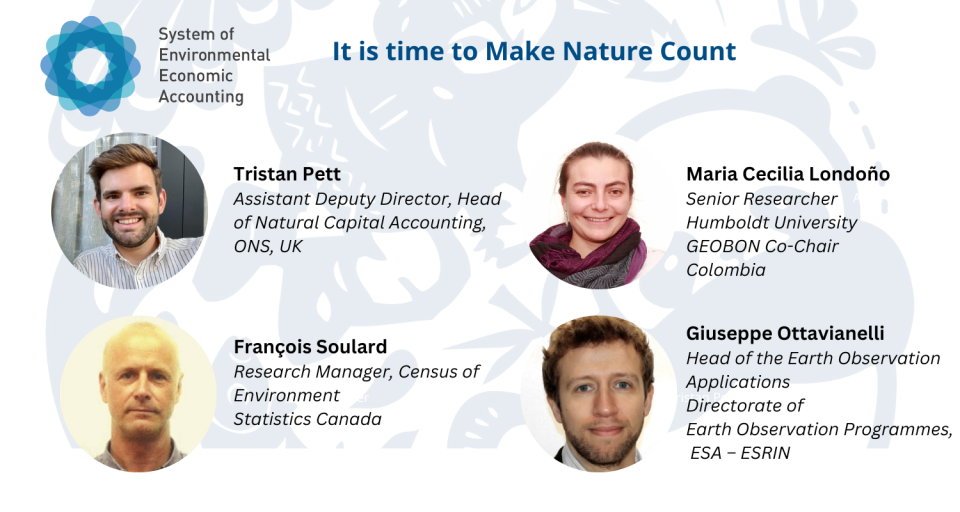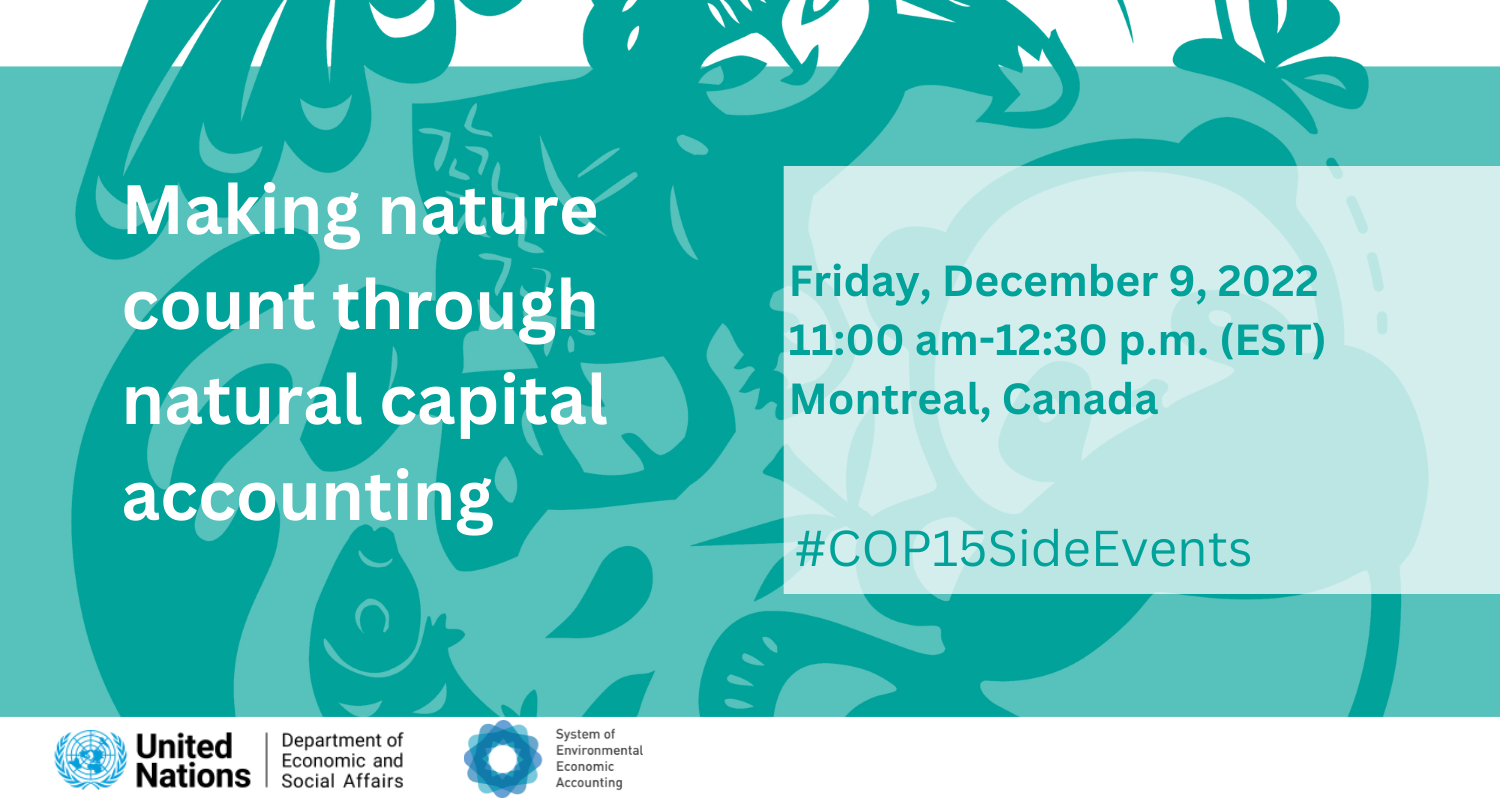
Side Event COP 15: Making Nature Count Through Natural Capital Accounting
This side event at the UN Biodiversity Conference (COP15) is organized by the Secretariat of Convention of Biological Diversity, European Commission, the European Space Agency, the United Nations Statistics Division and the International Union for Conservation of Nature
Mainstreaming biodiversity is generally understood as ensuring that biodiversity and ecosystems are adequately factored into national policies and practices. Natural capital accounting is the umbrella term used to indicate the use of an accounting framework to provide a systematic way to measure and report on stocks and flows of natural capital. The underlying premise if that nature is important to society and the economy and should be recognized as an asset that must be maintained and managed and its contributions better integrated into the regular statistical production process.
The System of Environmental Economic Accounting is the accepted international statistical standard for natural capital accounting, providing a framework for organizing and presenting statistics on nature and its relationship with the economy. It is essential for integrating biodiversity considerations into measures of national performance and policy appraisal and integral to inclusive wealth accounts. According to the 2021 global assessment on the SEEA implementation, approximately 90 countries compile the SEEA with 35 countries compiling ecosystem accounts. Scaling up the implementation in countries is an important goal of the statistical community, which adopted the SEEA implementation strategy in 2022
This side event will examine how the SEEA can help mainstreaming biodiversity into relevant strategies and plans, systematically integrate biodiversity into programmes, policies and projects, promote inter-ministerial coordination and setting time-bound targets, clear roles and responsibilities. Using the SEEA as the underlying statistical framework for some of the indicators in the monitoring framework will result in indicators that are consistent across domains comparable across countries and over time and permit monitoring progress towards achieving the goals and targets. The event will feature speakers from different communities and will highlight the importance of the SEEA to support integrated policies and decision making.
Speakers
Elizabeth Maruma Mrema, Executive Secretary, Convention on Biological Diversity
Shonisani Munzhedzi, Chief Executive Officer, South African National Biodiversity Institute
Anne Teller, Senior Expert, Directorate-General Environment, European Commission
Eli Fenichel, Assistant Director for Natural Resource Economics and Accounting, Office of Science and Technology Policy, The White House
Elke Hüttner, Director of Division Climate Change, Environment and Infrastructure, GIZ, Germany
Tristan Pett, Assistant Deputy Director, Head of Natural Capital Accounting, Office for National Statistics, United Kingdom
François Soulard, Research Manager, Census of Environment, Statistics Canada
María Cecilia Londoño, Senior Researcher, Humbodt University, Colombia
Giuseppe Ottavianelli, Head of the Earth Observation Applications Section, Directorate of Earth Observation Programmes, European Space Agency - ESRIN
Moderators
Juha Siikamaki, Chief Economist, International Union for Conservation of Nature (IUCN)
Alessandra Alfieri, Chief of Environmental-Economic Accounts, United Nations Statistics Division (UNSD)
Programme
|
Opening remarks
Context Setting: SEEA and the Post-2020 Global Biodiversity Framework
Keynote: How ecosystem accounting in South Africa is contributing to monitoring biodiversity
|
|
Panel discussion 1: Why NCA is relevant for the post-2020 global biodiversity framework and what can be done to advance it? Panelists
|
|
Panel discussion 2: Advancing SEEA implementation in countries for monitoring the global biodiversity framework Panelists:
|
|
Closing remarks
|
Event Date
Event location
Palais des congrès de Montréal
Room: Side-event 1 512E
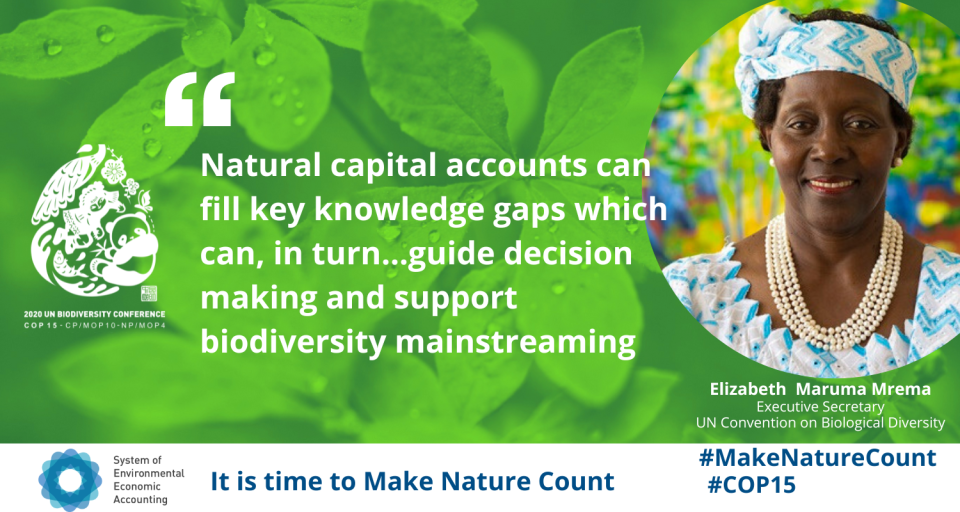
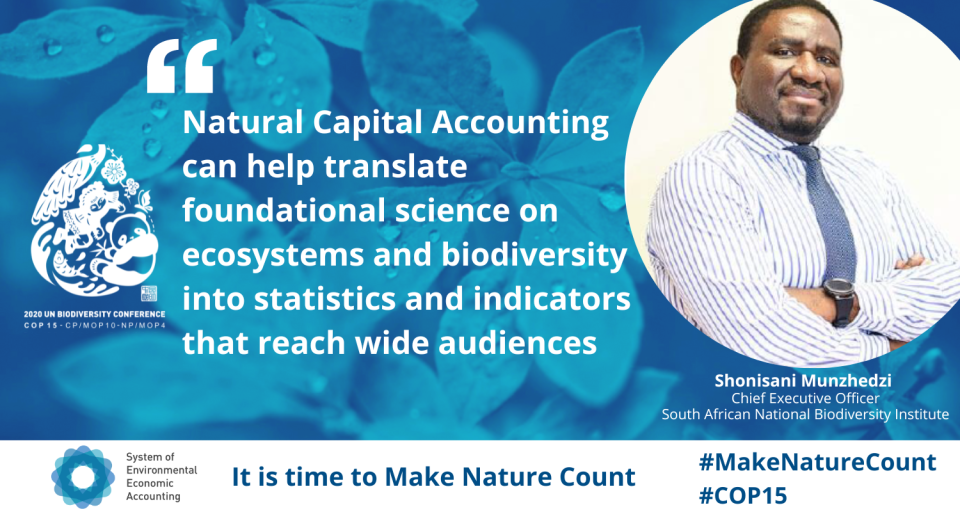
Panelists
